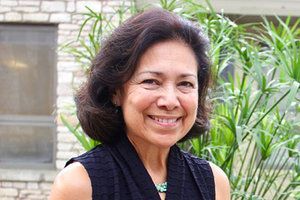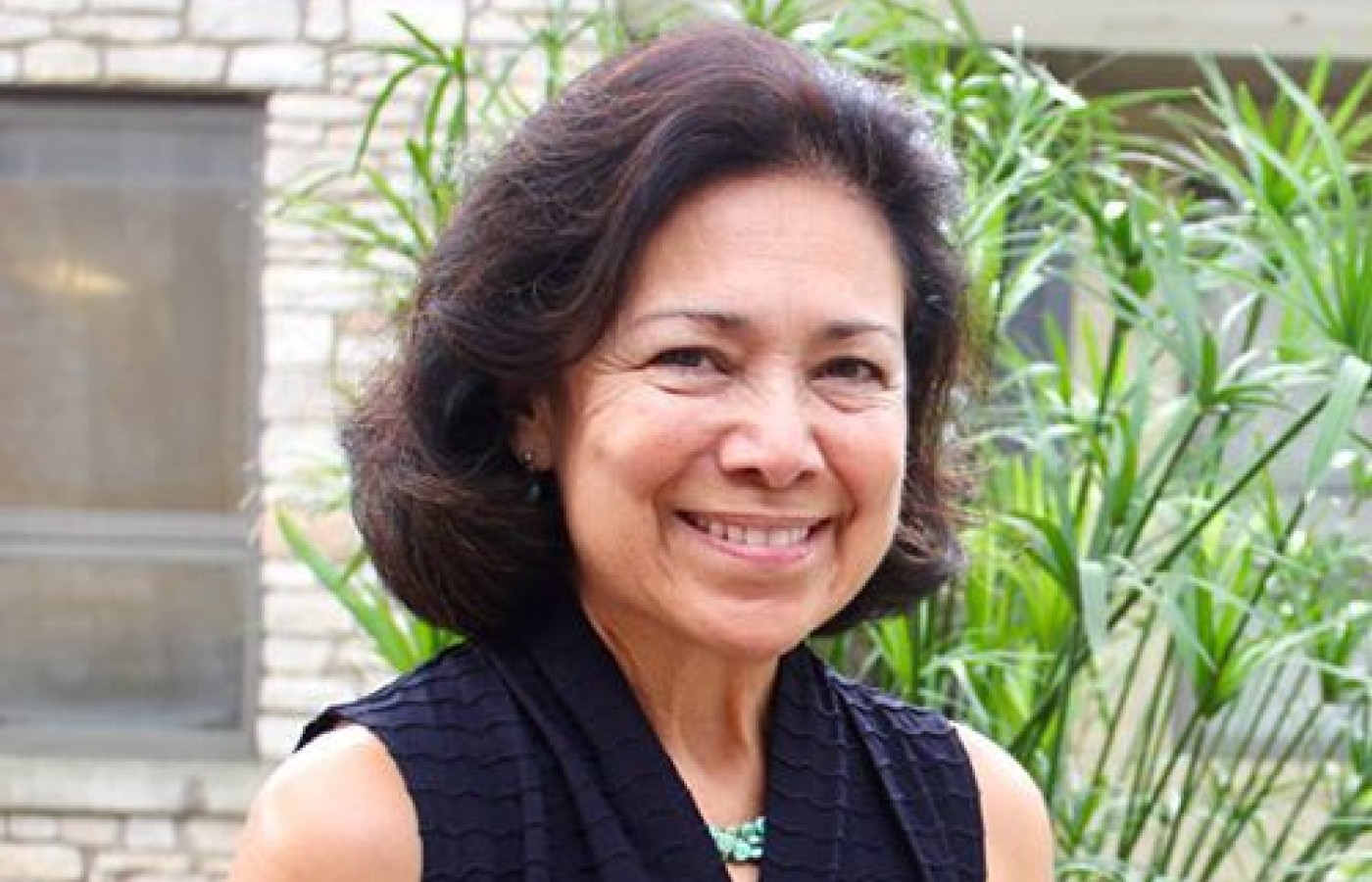The most important relationship I seek to nurture in the treatment room is the one a patient has with their own body. We live in a culture that teaches us to override pain, defer to outside authority, and push through discomfort. Patients often arrive hoping I can “fix” them, but the truth is, we can’t do the work for them. We can offer guidance, insight and support, but healing requires their full participation.
A New President for AOMA: A Conversation With Mary Faria
Editor's Note: Pam's column is an exclusive interview with Dr. Mary Faria, newly elected CEO/Acting President of AOMA Graduate School of Integrative Medicine in Austin, Texas.
Dr. Faria was formerly a health care executive for over 30 years, the last 17 of those years as vice president and chief operating officer of Seton Southwest Hospital in Austin. She chairs the board of Austin Mayor's Health and Fitness Council. She is also an adjunct professor at Texas State and Concordia Universities and lectures at the University of Texas at Austin.
PEF: Dr. Faria – You are filling some big shoes at AOMA following Dr. Betty Edmond. Both of you swapped top administrative jobs in the Seton Hospital network to leap into AOMA. Is Dr. Edmond mentoring you?
MF: Dr. Edmond has been a source of wisdom and thoughtful guidance. Her mentorship is a true gift. I think the best advice she has given me is to honor and value the beauty of Chinese culture.
PEF: Both you and Dr. Edmond bring a sea-change to the AOMA CEO position. Twenty-five years ago founder Stuart Watts created AOMA after fathering different acupuncture schools in the U.S. Followed by retired U.S. Air Force and "Purple Heart" Colonel Jimmie Coombes with his strong leadership, followed by our pulse guru Dr. Will Morris, and of course co-owner Linda Fontaine, who once stepped in admirably as interim CEO. What eclectic thoughts of past CEOs will you bring into your own leadership?

MF: I am honored to follow such amazing individuals, all bringing something unique and special to the role at AOMA. All helping to build the strong foundation. I hope my passion for integrative medicine, my experience in Western medicine, my passion for individual and community wellness, and the strong relationships I have developed over the years will continue to expand the vision for acupuncture and traditional Chinese medicine in American health care.
PEF: It's great to be able to say you are probably the first Latina to head a school of acupuncture in the U.S. What has inspired you to this point?
MF: I grew up in a very loving Mexican family in Houston, Texas. My Dad was an artist and some of my fondest memories involved spending most Sundays with my Mom, Dad and brother at the Houston Museum of Fine Arts. My Mom was the most important influence on my life. An avid reader, she had me reading well before I began going to school. Her most prized possession was a set of encyclopedias that included a series of books on anatomy and physiology. I loved the overlapping transparencies of human systems that we'd review together. There was also a set of poems and children's stories, that had the most beautiful illustrations.
PEF: Your early awareness of the art of anatomy and physiology probably paved a path into the health sciences? However, you only started training as a respiratory therapist (RT) when you found an opportunity to supplement your University of Texas BS (Life Sciences) with an associate degree in respiratory therapy—after you and your husband moved to West Texas when he was offered an engineering job. Fate?
MF: Yes, that launched my career in health care. I especially loved the diagnostics related to the pulmonary system. I started as an ICU therapist, but was quickly moved into supervisory and management roles, including the opportunity to start a pulmonary diagnostic lab at a Women and Children's Hospital.
PEF: You are also a health nut and avid marathon runner – not just locally but in the world famous New York City and Boston marathons. Half the secret of running involves the art of paced breathing. As a former respiratory therapist, you "walk the talk."
MF: You are right. Paced breathing is very important for runners. It's interesting that now I value the importance of breath from a new perspective. I think in Western medicine we traditionally place most of our focus on the body. As an RT I focused on how lungs and heart work together and of course how critical lung function is for life, but now I understand there are other connections. Breathing is critical for physical health but also for mental and spiritual health. As I come to understand Qi, I come to understand the mind, body and spirit connections and how important these connections are for true health/wellness and well-being.
PEF: How have you been able to run back and forth between academia and hospital administration?
MF: When my husband and I returned to Austin, I decided to go back to school to get my master's in Healthcare Administration. I knew I wanted to go into academia when I retired, so I completed my PhD at UT Austin in 2000. My area of research was in organizational change. In the last several years, I've worked with a colleague in research in the area of human resilience, which is so important as individuals and organizations move through change.
PEF: I hear your doctoral thesis was on unconventional methods of change in health management. Which seems to have prepped you to take the leap to AOMA from Western medicine. What appeals to you now as an administrator – and as a professor – about working in a new dimension of health education?
MF: So many things that were part of my life before AOMA are so valuable in this new dimension. The many community connections, the important relationships, the value of understanding the world of Western medicine have all proven to be invaluable to me in my role at AOMA. I've always believed in an integrative approach to caring for the whole person (mind, body and spirit I have had connections to AOMA in many ways for years. As an age group competitive runner it has been through an integrated approach, including acupuncture and traditional Chinese medicine that I've been able to overcome some significant injuries, stay healthy and continue my sport into my 60s.
PEF: Will you be teaching any classes at AOMA? Dr. Edmond used to love bouncing into our classes or hanging out in the student lounge. Will you do the same?
MF: Yes, on both counts. I love teaching. I taught for Dr. Claudia Voyles' leadership class for our doctoral students, and blended the topics of mindful leaders and managing change. I love staying connected to our students. Their stories of how they have come to AOMA and to this medicine are so amazing – often through some transformational event in their lives through Chinese medicine.
PEF: Do you hope to build on the links Dr. Edmond initiated with UT Austin's Dell Medical School?
MF: We continue to work closely with faculty at the Dell Medical School, to help them learn about us and how we could create stronger integrative models. We were honored that Dr. David Ring, associate dean for Comprehensive Care at the Dell Medical School was our keynote speaker this year at our commencement ceremony. AOMA will lead a collaborative team at the upcoming Healthier Texas Summit. I believe this will inspire even more opportunities for AOMA to become a role model.
PEF: So it sounds as though you are passionate about building new bridges between AOMA and your colleagues in Western medicine.
MF: I've been invited to be the moderator for a panel discussion on the value of an integrated approach in medicine in a combined annual meeting of the South Texas chapter of the American College of Healthcare Executives and the Healthcare Financial Management Association. The American College is my professional organization and I've been involved since I started in health care. I love that they love what I'm doing now.



